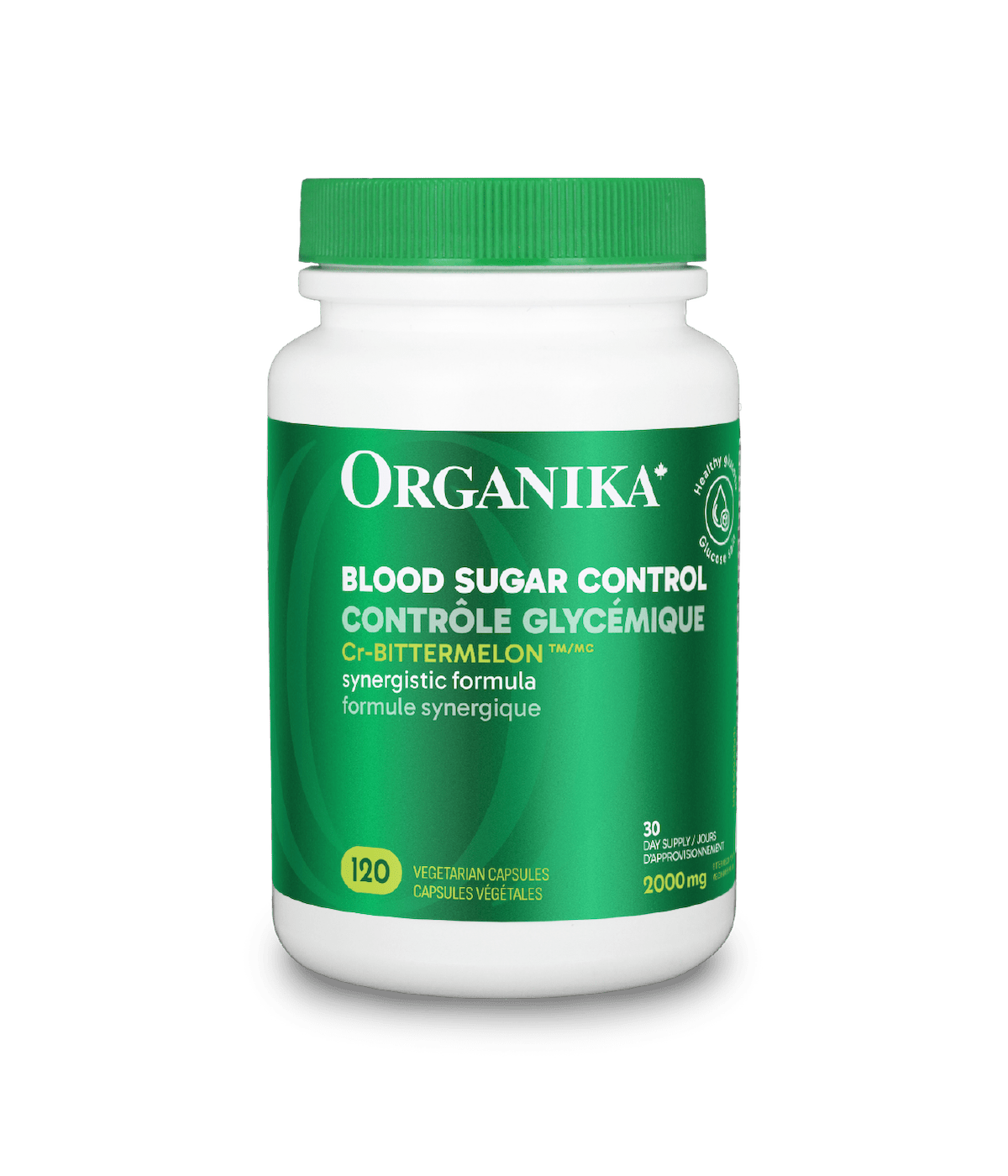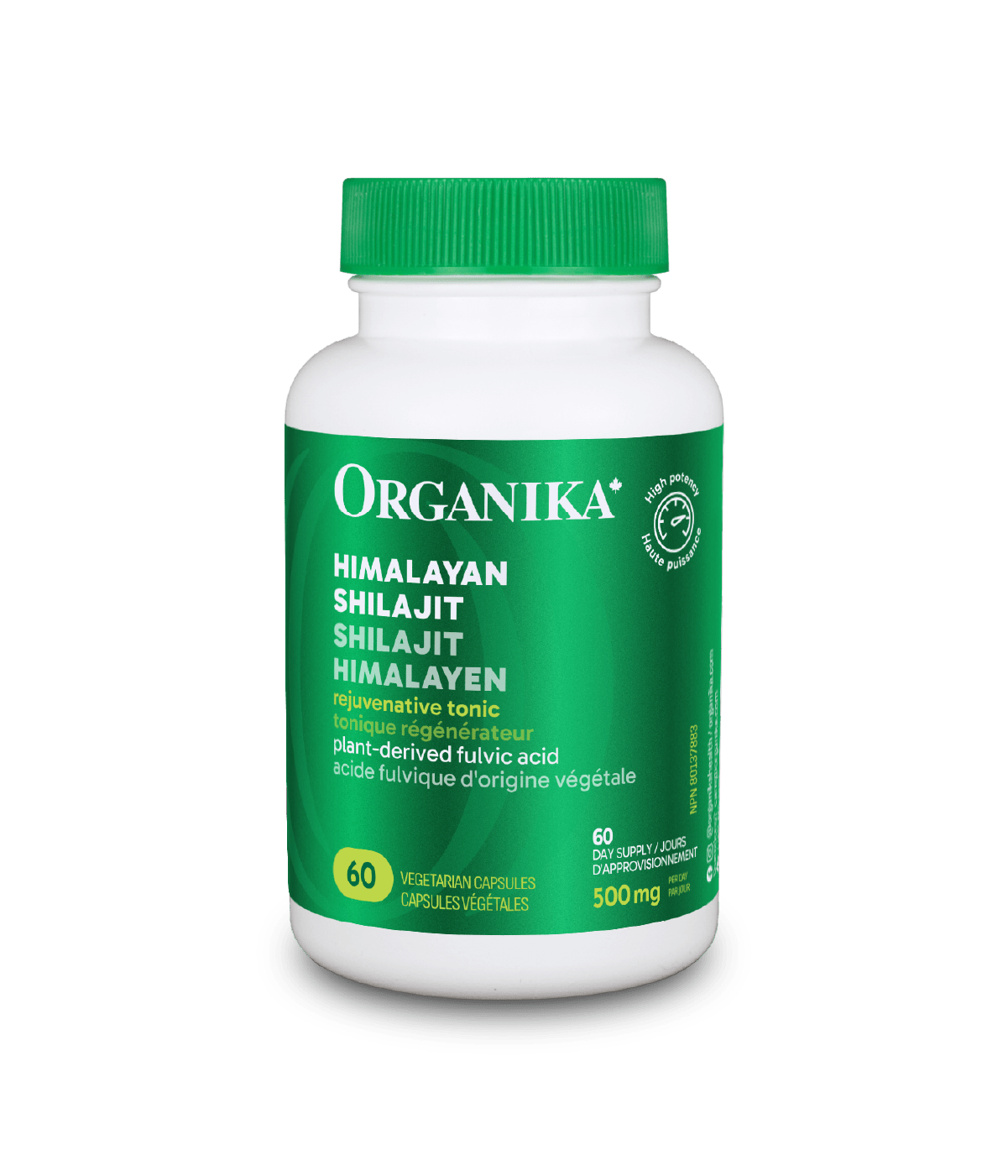
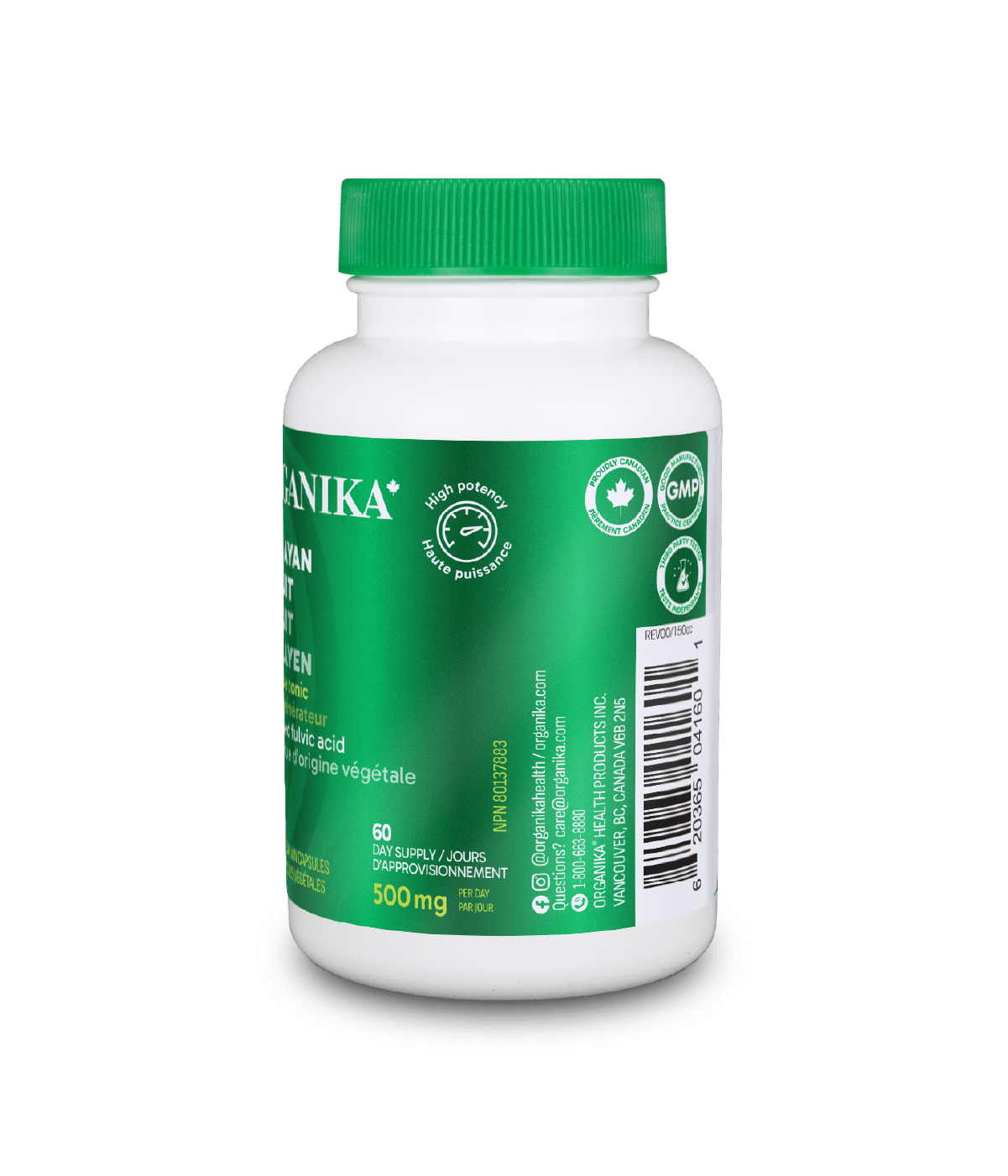
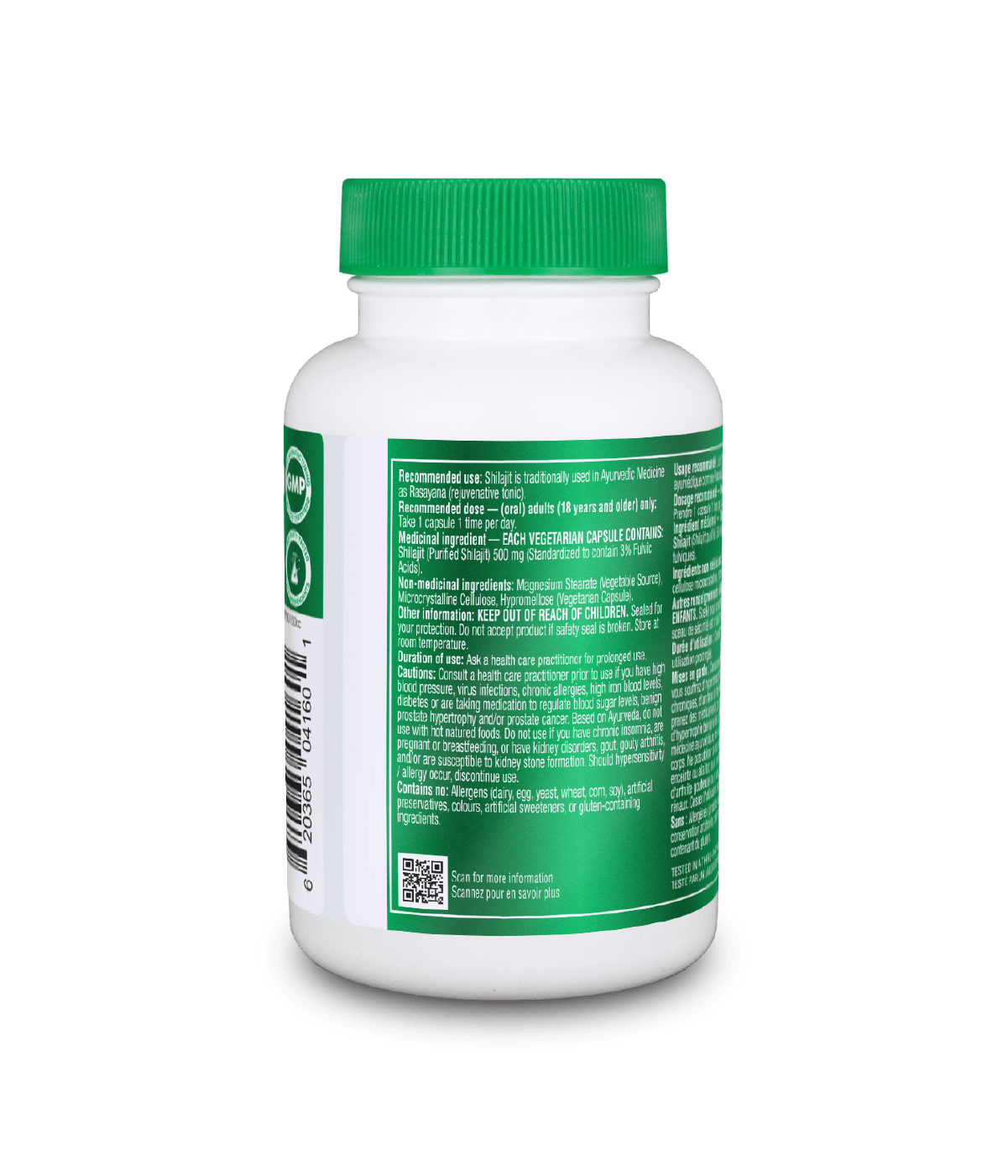
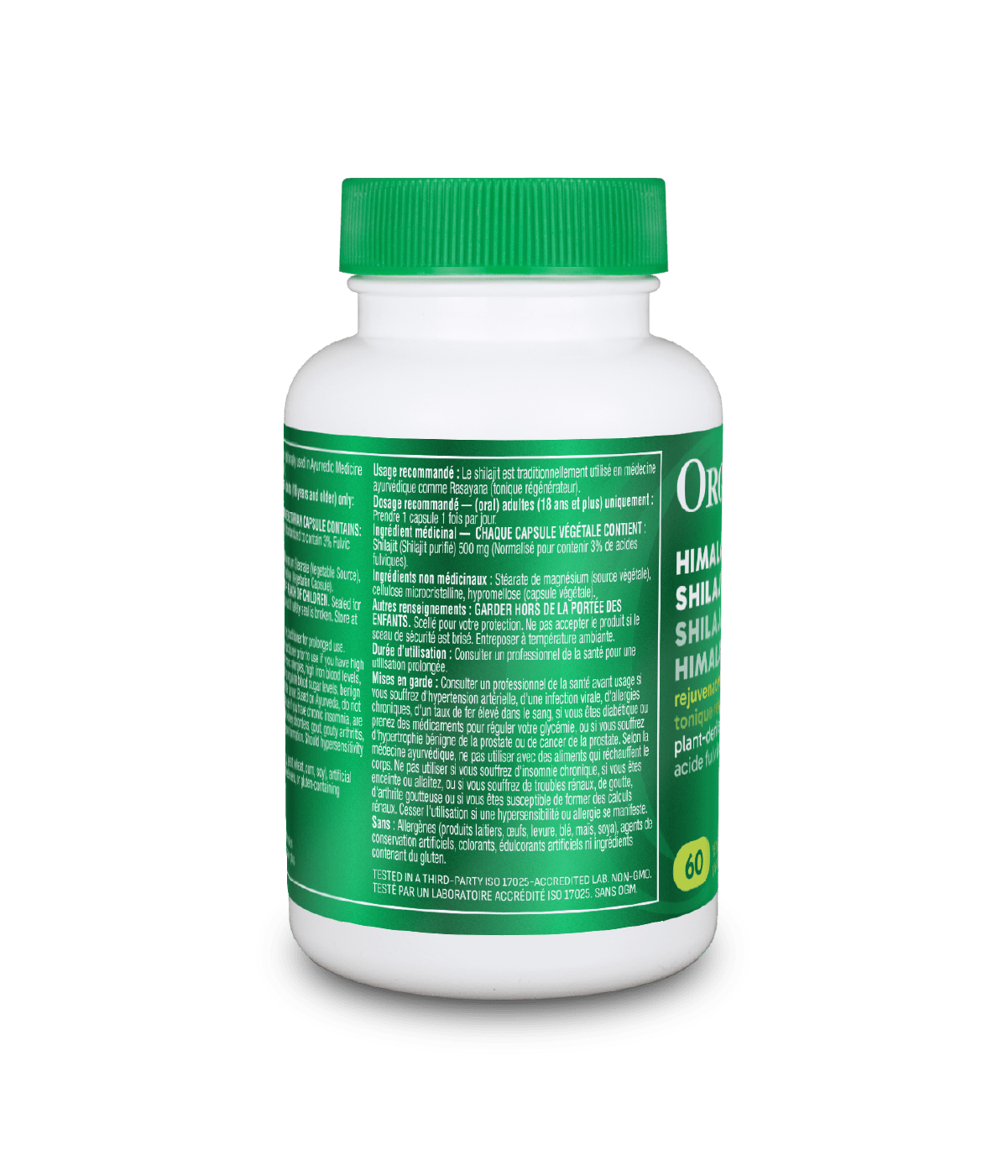




Shilajit
A restorative tonic meant to renew energy and strengthen vitality
- Boosts energy naturally and helps protect cells
- Traditionally used in reproductive health
- Supports healthy aging and resilience
- Mineral-dense formula to nourish daily wellness
Couldn't load pickup availability
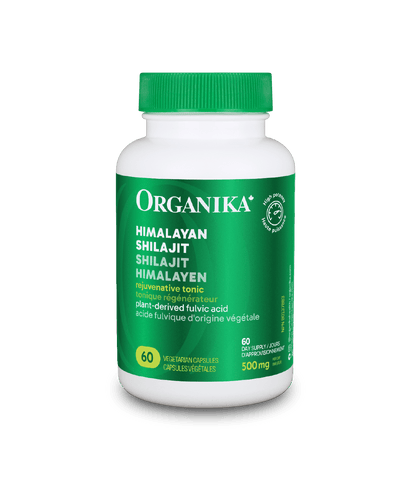
Notify Me When Available
Enter your email and we'll let you know as soon as this product is back
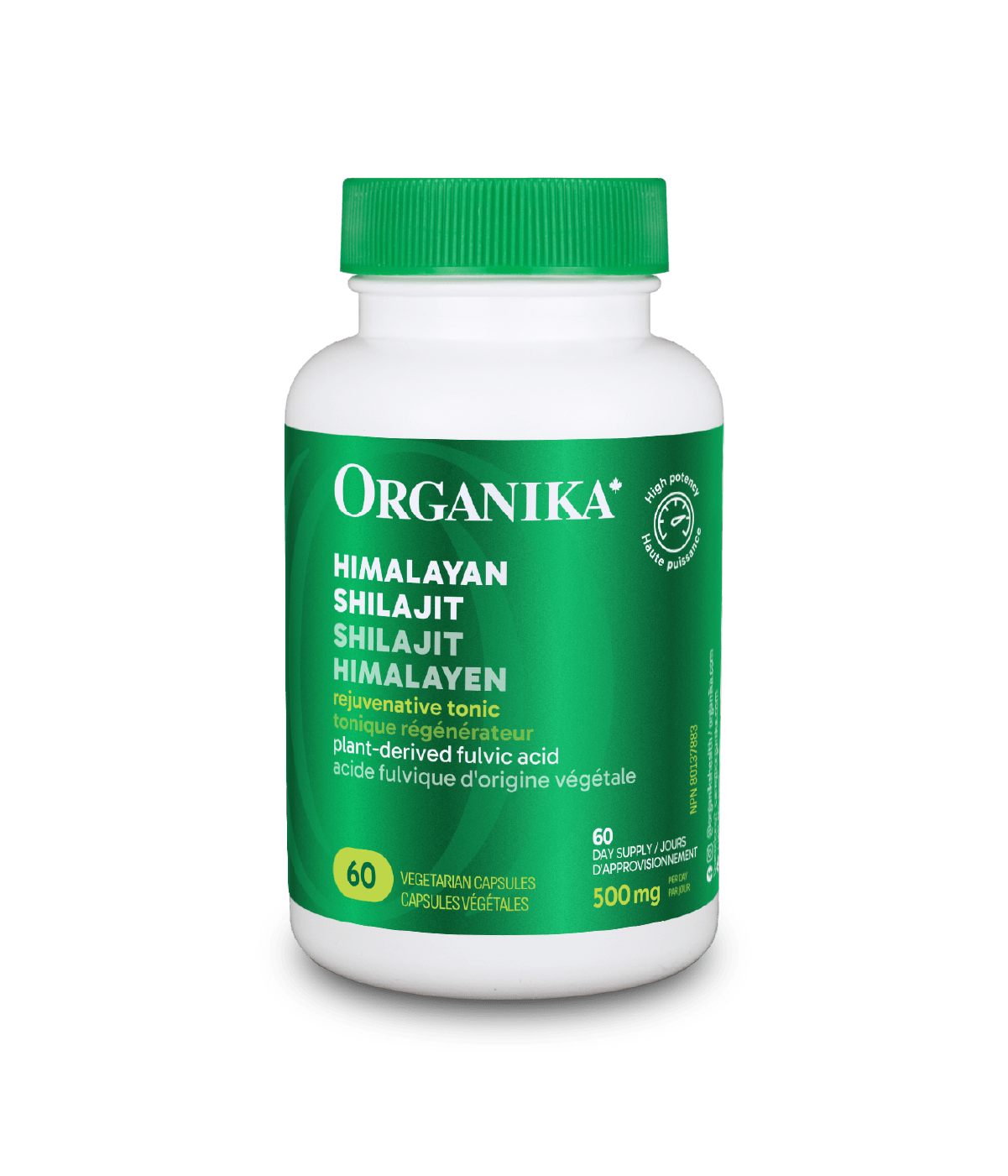
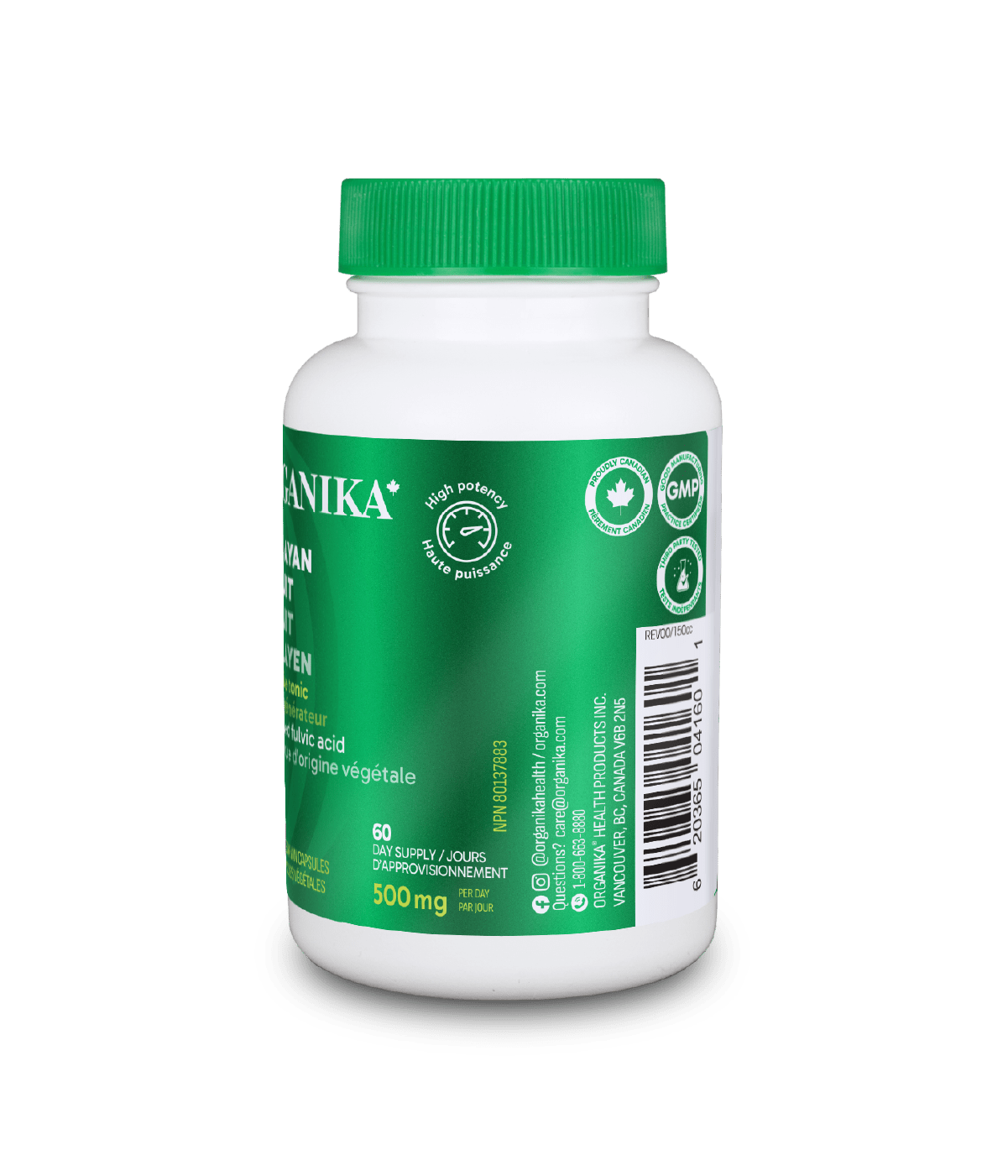
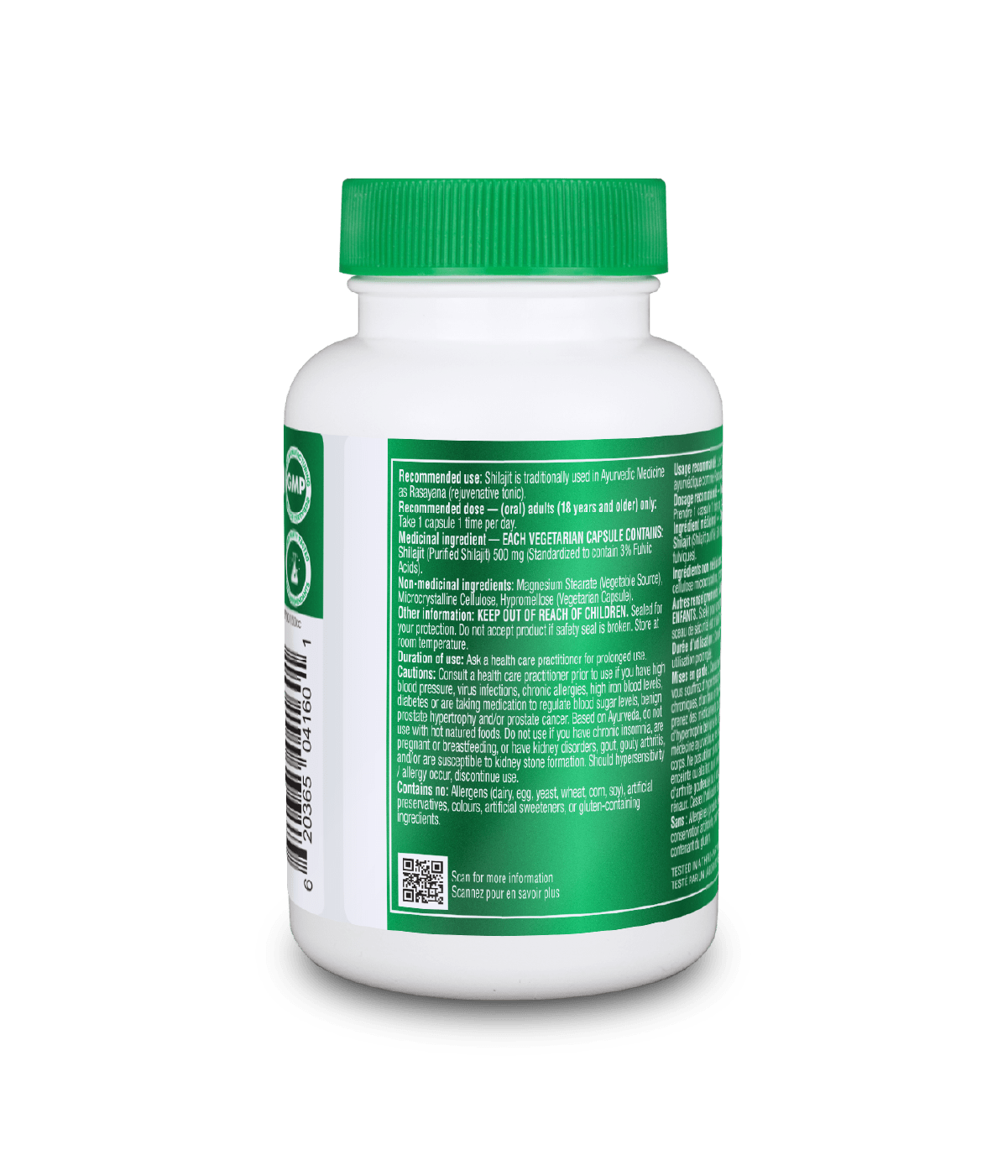
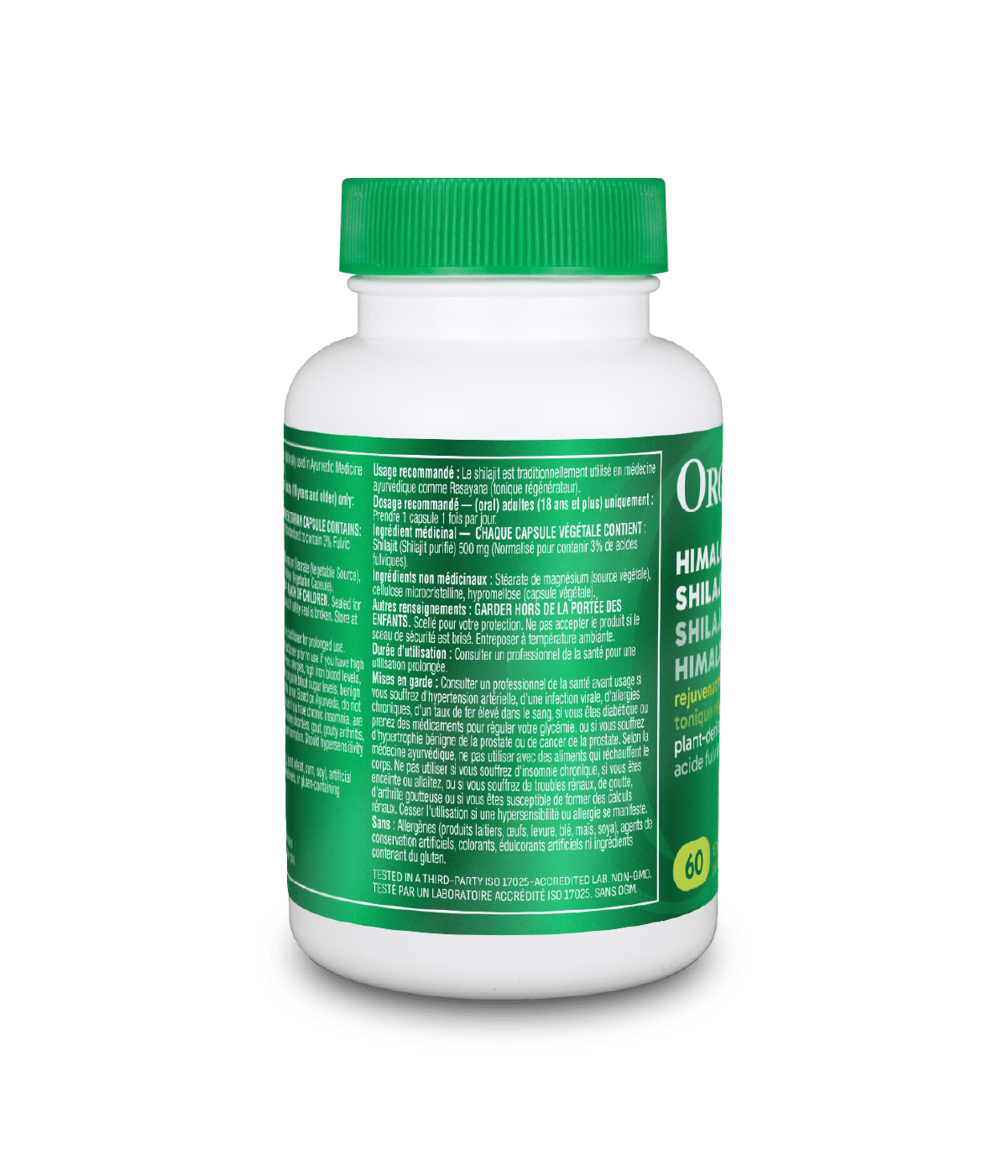




Supplement Facts
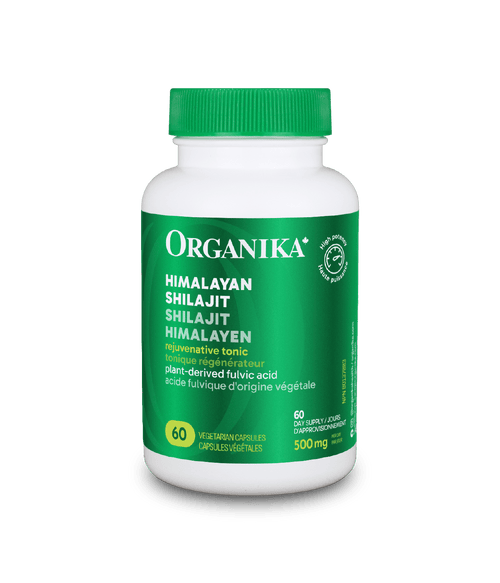
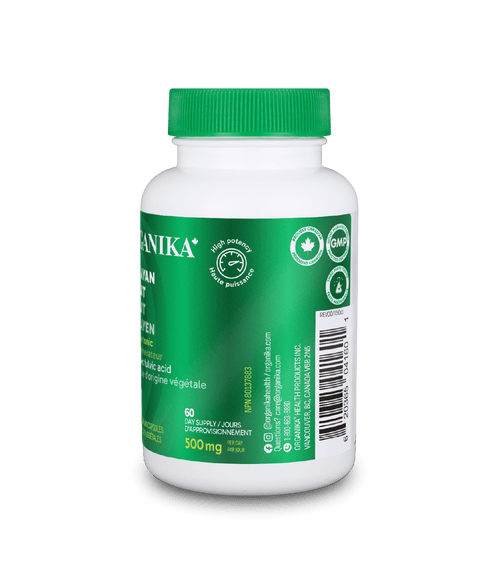
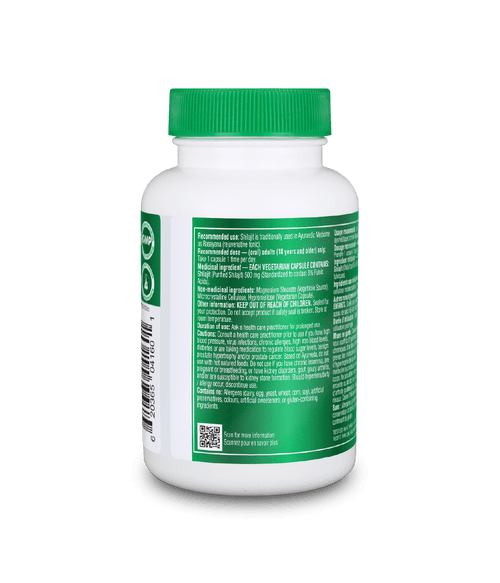
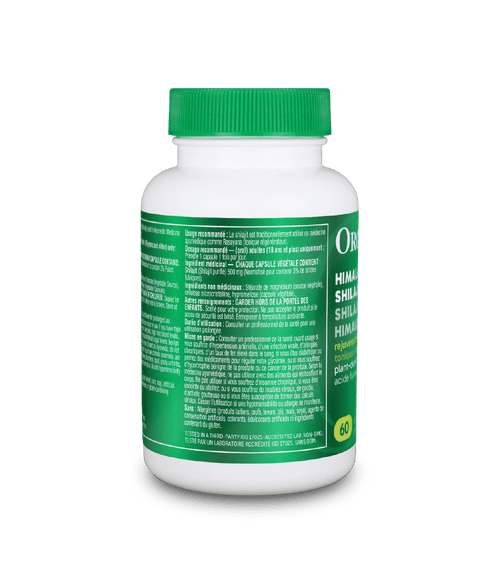
Ingredients & Nutrition
MEDICINAL INGREDIENTS - EACH VEGETARIAN CAPSULE CONTAINS: Shilajit (Purified Shilajit) 500 mg (Standardized to contain 3% Fulvic Acids).
NON-MEDICINAL INGREDIENTS: Magnesium Stearate (Vegetable Source), Microcrystalline Cellulose, Hypromellose (Vegetarian Capsule).
Recommended dose - (oral) adults (18 years and older) only: Take 1 capsule 1 time per day.
Is This Right for You?
Looking for a time-tested way to recharge the body and mind?
Wanting a natural source of minerals and fulvic acid to support your daily wellness?
Searching for a simple, modern way to bring Ayurvedic tradition into your routine?
If you answered ''yes'' to any of the above, this product is right for you.

-
Supports healthy aging and resilience
-
Mineral-dense formula to nourish daily wellness
Ingredients & Nutrition
Recommend For
Looking for a time-tested way to recharge the body and mind?
Wanting a natural source of minerals and fulvic acid to support your daily wellness?
Searching for a simple, modern way to bring Ayurvedic tradition into your routine?
If you answered ''yes'' to any of the above, this product is right for you.
Sans gluten
Egg-Free
No Preservatives
Dairy-Free
No Artificial Sweeteners
No Artificial Colours or Flavours
Bringing an ancient Ayurvedic tonic into modern life, offering a natural way to support vitality and strengthen overall well-being


The Full Scoop

-
Supports healthy aging and resilience
-
Mineral-dense formula to nourish daily wellness
The secret to feeling more balanced is hidden in the mountains? For centuries, Shilajit has been prized in Ayurvedic medicine as a Rasayana a restorative tonic meant to renew energy and strengthen vitality. Formed from ancient plant material and rich in fulvic acid, this mineral-dense compound has quietly supported wellness rituals for generations.
Our Shilajit capsules carry that Ayurvedic tradition into modern day, offering an easy, high-potency way to support nutrient absorption and bring a sense of restoration to your daily rhythm.
You'll Likely Also Love...
Ginseng rouge coréen
Your natural boost to support mental focus and reduce mental fatigue
Ashwagandha
Feel calm and grounded with this adaptogen that works by lowering cortisol
Bitter Melon for Blood Sugar Control
Plant-based support for blood sugar balance and digestive health
Lion's Mane Ultra Strength
A potent support for cognitive clarity, memory and focus
Support Beyond Products
It’s normal to feel tired once in a while, but exhaustion shouldn’t be a part of your everyday routine. If you’re in a constant state of low energy where even the simplest of tasks seem like a challenge, there could be more going on under the surface. There are a number of factors that contribute to low energy. Some are more serious, like chronic health conditions including diabetes, hypothyroidism or congestive heart failure. Others are more lifestyle related, such as deficiencies, diet, stress, or poor quality sleep. So let’s talk about low energy, and what could be causing it: Nutrient Deficiencies When it comes to nutrient deficiencies, B12 and iron are the common culprits linked to low energy. Iron plays an important role in forming red blood cells that carry oxygen from your lungs to the cells throughout your body. Without enough iron, your body struggles to get enough oxygen to your brain, tissues, and muscles leaving you feeling exhausted. Low iron or iron-deficiency anemia is most common in women. Vitamin B12 deficiencies can also cause low energy plus poor concentration and tingling in the hands and feet. B12 is found primarily in animal products including dairy, eggs and meats, so generally vegetarians and vegans are at a higher risk of deficiency. Stomach acid plays a major role in the absorption of vitamin B12, so older adults and those taking medications that affect stomach acid production can also be at higher risk of being low in B12. Poor Diet The foods you eat can have a massive impact on your energy levels. Take sugar for example, if you’re eating sugary foods, you blood sugar spikes, and you feel alert and energetic. Eventually, your blood sugar will drop again, and when that happens your energy levels drop with it. Maintaining balanced blood sugar levels is key to steady energy throughout the day. That means ditching sugary foods, and refined and processed foods that digest quickly, for slower digesting whole foods. Try adding high fiber fruits and vegetables, beans, complex carbohydrates and good quality fats and proteins. Too Much Stress When you experience stress your adrenal glands produce cortisol (your main stress hormone) to send you into fight or flight mode. This is a good thing in cases where there’s a threat that you need to escape from, or protect yourself from. But in reality, a lot of our day to day stressors don’t fall into that category. Fight or flight response sends blood to your extremities, so you can run faster or fight harder. What you can’t do however, is digest your food effectively, or sleep soundly when you’re in this state. Constant exposure to stress can lend to adrenal exhaustion, resulting in a higher cortisol release to lower levels of stress that otherwise wouldn’t trigger such a response. Too much cortisol in your body can affect your ability to sleep and leave you feeling mentally and physically exhausted. Lack of Quality Sleep Most adults need 7-9 hours of sleep per night, yet don’t even come close to that on a regular basis. A lack of sleep leaves you feeling irritable, moody and definitely low in energy. But sleeps not just a numbers game, the quality of your rest matter too. Getting uninterrupted sleep is ideal, but at minimum spending time in more restorative deep sleep cycles can help your body to feel more rested. Sleeping in complete darkness, cooler temperatures and a comfortable space with zero distractions can help to improve your sleep environment for better quality rest. If any of those causes sound like they could be contributing to your low energy, there’s good news. You can eat healthier, manage your stress and improve your sleep. The bad news however, is that sometimes making those healthy changes takes energy. So, it can all seem a little bit impossible when you’re already lacking energy right now. But that’s where superfoods really shine. Superfood Support for Low Energy Superfoods are nutrient dense foods that can help your body find balance. In cases of low energy maca root is a really great option. It comes from Peru, and was historically used to give energy to the Incans before battle. Today you can find it in powder form ready to throw into smoothies, soups or sauces. Maca root is an adaptogenic herb, which means it can help your body to adapt to stress. It’s rich in nutrients, like B vitamins and vitamin C (both of which your adrenals need for dealing with stress) and minerals like calcium, magnesium, zinc and iron (an important mineral for energy). Maca is also a rich source of antioxidants and phytonutrients, and even plant based protein. When you’re using maca, a gelatinized variety is more digestible. The more digestible the product, the easier it is for your body to absorb the nutrients and benefits of the root. Aside from its nutritional profile, maca helps to relieve anxiety and depression to support energy and mood balance. It also supports the endocrine system to help balance both female and male hormones improving fertility and boosting sexual libido. Using maca is a simple and healthy way to start feeling more energetic, so you can start making the changes you need to make for better long lasting energy every day.
read moreWhen it comes to sleep, it is not only important that you are getting enough, but it is also important that are you getting good quality sleep. Sleep is important for physiological reactions all throughout the body, such as hormone regulation, mediating mood, and healing and supporting our immune system. Basically, if your sleep is off, everything will be out of balance. In North America, it is more common than ever for individuals to be sleep deprived. This may be due to many different factors. It really comes down to the health, environments and lifestyles of the individual experiencing sleep issues. There are some common practices that can help improve the quality of a person’s sleep. Below are what I find to be most important when working towards a healthy sleep regime. 1. Blue Light Blocking In today’s society, we are surrounded by blue light; both natural sources such as the sun, as well as unnatural sources like LED lights. Backlit devices (blue light) is artificial light that surrounds us in our homes and is on all screens including smartphones, TV’s, tablets and computer monitors. Staring at these screens into the evening hours can be disruptive to our hormones that play a role in helping us fall asleep. Melatonin is an important hormone involved in helping us to fall asleep and stay asleep. Melatonin is produced in a small part of the brain called the pineal gland. The production of this hormone is stimulated by our natural circadian rhythm regulated by the setting of the sun. When it gets dim out, melatonin is produced making us feel sleepy. If instead we are staring at and surrounded by bright lights come sunset, our melatonin production is inhibited, and we struggle with falling asleep. Consider the below modifications to help keep your melatonin regulation optimal: No screen time two hours before bed. Depending on current habits, this may be something you take small steps to work towards. Start small such as 30 minutes and work your way up to two hours. Unless you have the latest iPhone that automatically is programmed with a blue light filter, you can download an app called f.lux for all of your screen devices. This blue light concept is not new, and there are programs and apps available to filter the blue light from your screens. Consider putting a few red lightbulbs in lamps around your home. When the sun begins to set, turn off the main lights and switch on the red lamps instead. Putting salt lamps near the bed or in the bathroom for those middle of the night trips is a calming way to see your surroundings without stimulating yourself too much in the night with blue light. Another option to block blue light is to buy blue light blocking glasses. You can purchase those on Amazon or at your local department store. You can purchase some orange safety glasses and wear them in the evening hours. The shade of the glasses will block blue light. You may look funny, but trust me, your sleep health is worth it! 2. Make your room sleep-friendly Blackout your room. This means putting up blackout blinds and place a towel in front of the door where light might shine in. There is a ton of research on the adverse effects of even a small amount of light exposure while you are asleep. Light exposure in the middle of the night may make for a groggy morning. Do your best to make your sleeping accommodations as dark as possible. Keep your room simple. You should use your room for sleeping and cuddling only! Try and avoid studying or doing work-related tasks in your bedroom. Keep your bedroom free of clutter. Leave the technology out of the bedroom. 3. Create healthy habits that will enhance your sleep quality Practice going to bed and waking up at the same time every morning. When you are trying this keep in mind that if you are not falling asleep after 30 minutes, it is best to get out of bed and go back when you are ready to sleep. However, if you get up and out of bed, remember your blue blight blockers! When you wake up in the morning, expose yourself to natural light. Head outside for an early morning walk. Exposing yourself to early morning light for as little as 20 minutes will help regulate your natural circadian rhythm. Eat your last meal at least 3 hours before bedtime. This is important because digesting food takes a lot of energy. If you eat close to bedtime, your body’s energy will go towards digesting and absorbing food instead of other actions such as efficiently producing hormones that help you with sleep. Meditate before bed. Try and slow down your mind in the evening. If meditation is not your jam, try reading a book or magazine. Sleep is important! When we are not sleeping properly we will notice it! Weight gain, negative mood changes, and weakened immunity are just some examples of the many problems we encounter with poor sleep quality. The above lists are suggestions that may help to improve your sleep, starting with incorporating one or two small things into your daily routine is a step in the right direction for improved sleep quality. Depending on each individual, there are many ways to help improve sleep quality including supplementing with vitamins, minerals and herbs. If you struggle with sleep it is best to talk to your Naturopathic Doctor to find a health regime that best suits your unique needs. Sleep well, be happy, be healthy! Amy is a certified nutritionist with over 7 years of experience working in the health and fitness industry. She is currently in her third year as a Naturopathic Medical Student and has a special interest in gut and brain health. Find her on Instagram: @amy_kwilson
read moreBitter melon, a tropical fruit used in traditional medicine, has gained attention for its potential to help manage blood sugar levels, especially in people with type 2 diabetes. While research on its effectiveness is ongoing, several studies highlight its promise as a natural aid for those looking to support healthy glucose levels. How Bitter Melon Works Bitter melon works through both intra- and extra-pancreatic mechanisms, meaning it influences insulin secretion from the pancreas and improves how the body uses insulin (Dahlquist et al., 2023). Studies have found that bitter melon can reduce fasting blood glucose levels and even lower HbA1c, a marker of long-term blood sugar control, in diabetic patients (Kim et al., 2022; Dahlquist et al., 2023). A 12-week clinical trial showed that bitter melon extract reduced glucose levels and suppressed glucagon in prediabetic patients (Kim et al., 2022). Similarly, a study in Thailand observed that adding bitter melon to existing diabetes treatments significantly reduced fasting plasma glucose levels (Fuangchan et al., 2009). These results suggest bitter melon could be a valuable addition for individuals managing blood sugar. Pairing Bitter Melon with Chromium Organika combines bitter melon with chromium in their Blood Sugar Control. Combining bitter melon with chromium may offer enhanced support for blood sugar management. While chromium improves insulin efficiency and glucose tolerance, bitter melon’s influence on insulin secretion and usage can provide complementary benefits. Together, they can form part of a holistic approach to maintaining healthy glucose levels. Final Thoughts Bitter melon and chromium each bring unique benefits to blood sugar control. While bitter melon shows promise in reducing glucose levels and improving insulin function, chromium enhances the body's ability to use insulin efficiently. Incorporating these supplements into your wellness routine could help support metabolic health naturally. Always consult with a healthcare professional before adding new supplements to your routine, especially if you’re managing a health condition like diabetes. At Organika, we’re here to guide you with trustworthy advice, so you can feel confident in your choices and love living healthy. References https://www.semanticscholar.org/paper/Momordica-charantia-(bitter-melon)-efficacy-and-on-Kim-Lee/f587dcc42f05b5080c0f4dc81d6b1212b001d05a https://www.semanticscholar.org/paper/Clinical-application-of-Momordica-charantia-(Bitter-Dahlquist-Jandali/39ed0922638d5c22d5eb8bfacebcb80507e43d93 https://www.semanticscholar.org/paper/Retrospective-study-on-the-use-of-bitter-melon-for-Fuangchan-Seubnukarn/bfcc014bd0f90666891a5c1410482c7468be4594
read more







